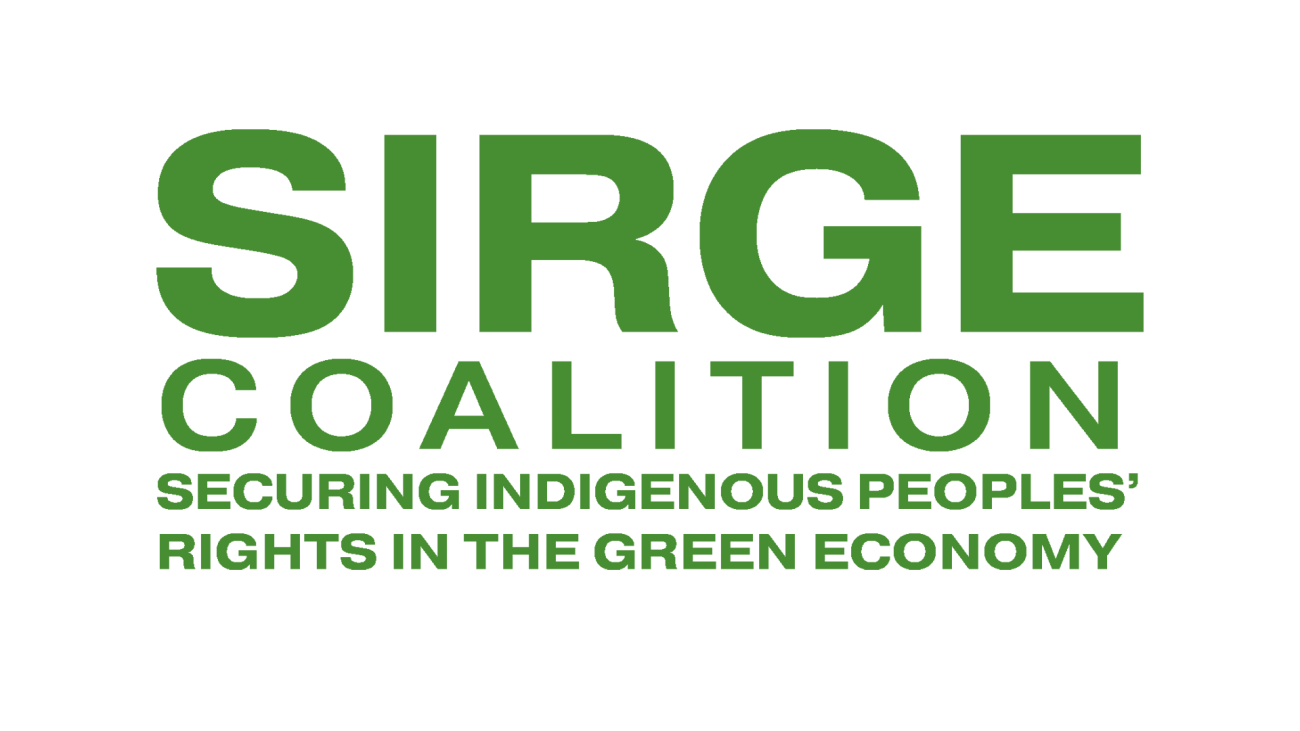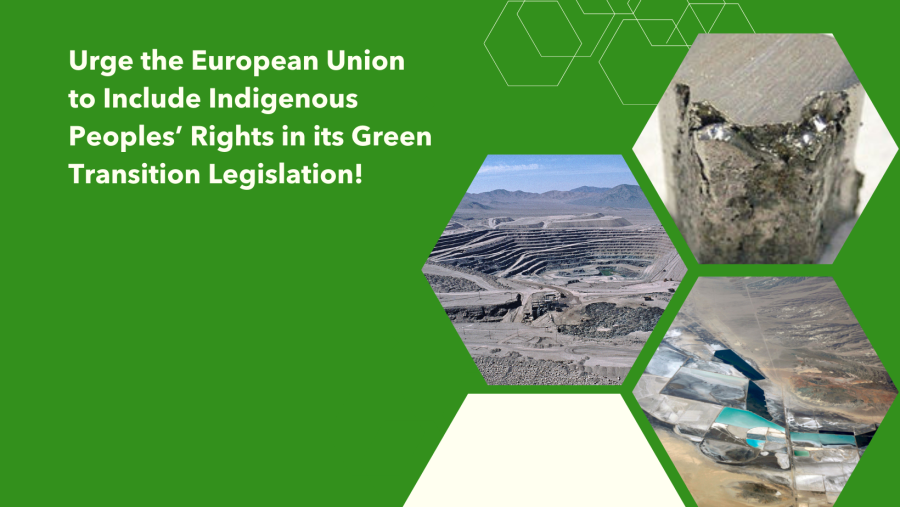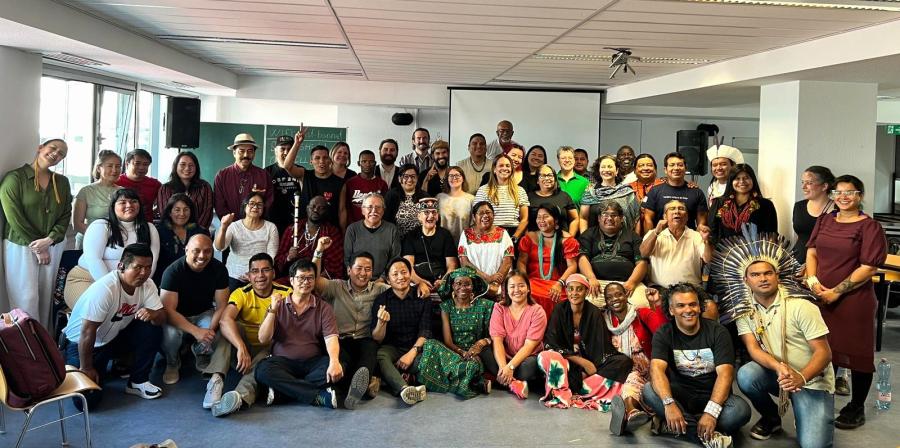
Statement by Securing Indigenous Rights in the Green Economy Coalition
March 15 marked the EU Council's adoption of the long-awaited Corporate Sustainability Due Diligence Directive (CSDDD) that aims to protect the environment and human rights across supply chains.
With this endorsement, a critical step has been taken towards enforcing corporate regulations, promoting environmental stewardship, and safeguarding the rights of individuals affected by corporate activities, including Indigenous Peoples.
The Securing Indigenous Rights in the Green Economy Coalition (SIRGE) welcomes the approval of the CSDDD, but regrets that the final agreed text was heavily diluted, lowering the level of ambition that Indigenous Peoples, civil society, and even the European private sector have advocated for many years.
As the European Coalition for Corporate Justice rightly points out, the legislation will only cover about 0.05 percent of EU companies and business activities that typically pose risks to human rights, Indigenous Peoples’ rights, and the environment. This is unacceptable because the original EU Commission proposal only included 1% of companies already. Ambition declined from bad to worse.
SIRGE welcomes the inclusion of Indigenous Peoples' rights in recital 25a and 44c. This recognition of Indigenous Peoples' rights, as outlined in the United Nations Declaration on the Rights of Indigenous Peoples, including Free, Prior, and Informed Consent (FPIC), is a significant step forward.
However, SIRGE deeply regrets that the rights of Indigenous Peoples are solely referenced in the recitals and not integrated into the articles or annexes of the agreed CSDDD text. This omission makes it challenging for Indigenous Peoples on the ground to invoke the CSDDD to safeguard their rights in a clear and accessible manner.
SIRGE urges the European Parliament and the EU Council to increase the level of protection of Indigenous Peoples in the CSDDD by making it mandatory not only in the recitals but also in the provisions.
Galina Angarova (Buryat), Executive Director, SIRGE, said: "The EU Council's approval of the CSDDD is a step forward in addressing corporate accountability and environmental protection, but it falls short of effectively safeguarding Indigenous Peoples' rights. While we welcome the recognition of Indigenous rights in recitals, their absence from the articles and annexes undermines their practical implementation. The EU's energy transition ambitions must align with its commitments to Indigenous Peoples' rights. It's time to elevate Indigenous rights from mere rhetoric to actionable provisions within the CSDDD. Our collective responsibility demands nothing less."
Edson Krenak (Krenak), Advocacy Coordinator, Cultural Survival, said: “The CSDDD’s potential is significant, but strong business lobbying, weak political will, and short vision can dilute its effectiveness, putting Indigenous Peoples at greater risk and endangering the planet's ecosystems. For that, Cultural Survival, through the Securing Indigenous Peoples’ Rights in the Green Economy (SIRGE) Coalition, can offer a crucial platform for respectful engagement with Indigenous communities, the development of stronger policies, and a positive environmental impact.”
Pavel Sulyandziga (Udege), President, Batani Foundation, said: “We cannot return to the era of colonization; we cannot build a green future for some communities at the expense of destroying others. And this is exactly what can happen if we do not protect the lands of Indigenous Peoples and strengthen their voices. The European Union has set an example of making progressive strides in protecting the rights of Indigenous Peoples in recent decades, and this must continue to evolve and progress rather than lose ground and relapse.”
Kate R. Finn (Osage), Executive Director, First Peoples Worldwide, said: “The CSDDD, as approved by the EU Council, fails to provide the private sector the direction and incentives necessary to avoid detrimental impacts to Indigenous Peoples. Without a clear standard for assessment and reporting, there is little information about identification, mitigation, and elimination of the numerous supply chain risks related to failing to respect Indigenous Peoples’ rights. Companies operating through the EU system must operationalize a much higher level of due diligence for impacts to Indigenous Peoples than what is regulated by the CSDDD in order to avoid substantial risk to their shareholders, to people, and to the planet.”
Christoph Wiedmer, Co-Director, the Society for Threatened Peoples, said: “All the many industry-led certification systems use rhetoric about Indigenous Peoples and an intact environment, but in reality, they mainly serve to calm customers' concerns with very little positive impact on the ground. We are tired of hearing comments from companies saying that their concurrence has a huge price advantage by not following any ethical standard. It is now time to level the playing field for all companies in order to effectively protect the rights of Indigenous Peoples through binding legislation.”
Payal Sampat, Mining Program Director at Earthworks, said: "In Europe, and around the world, the majority of transition minerals extraction is taking place on the territories of Indigenous Peoples, whose rights to determine their own priorities for their lands, territories, sacred sites and resources must be respected. We are glad to see that Indigenous Peoples' rights are recognized in the European Union's Corporate Sustainability Due Diligence Directive, but disappointed by the myriad loopholes, concessions and exclusions that were made at the last minute. These safeguards must be included and mandated in the final vote.”
###
The SIRGE Coalition is a coalition of Indigenous Peoples and leaders, who, along with our allies, champion a just transition to a low-carbon economy. Members of the Coalition include Cultural Survival, First Peoples Worldwide, Batani Foundation, Earthworks, and the Society for Threatened Peoples.



